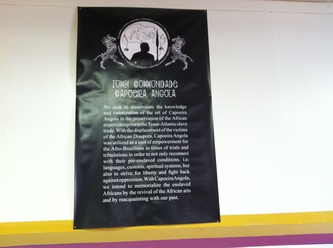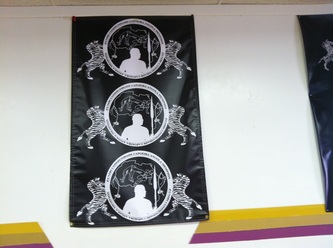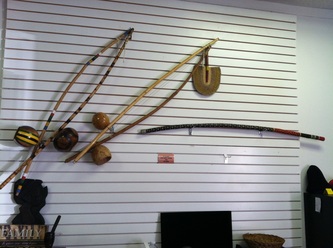Sah Ankh Sa Maat always knew she wanted to study dancing. When she was 19 years old and first encountered the art of African dance at Hampton University, she knew that it was best suited for her.
After graduating from Hampton, she admitted that her move to Memphis in 2003 merely started out as something new to do.
That later evolved into the opening of a dance studio under the Abule Fan Music and Dance company located on 644 S. Highland St., dedicated to teaching people the different aspects of traditional African dance and other topics.
“Aside from African dance, what we will be teaching people includes meditation classes on Saturday mornings, classes in Capoeira Angola, an Afro fitness class, and several holistic health services," Sa Maat said.
Though her studio has been in business for only two months, Sa Maat, who hails from Peoria, Illinois, sees a good opportunity from doing business in the University District.
“This is a good way to expose the art of African dancing to young people that have a thirst for knowledge,” she said. “You never know who’s going to come through the doors, or where they might come from.”
The prime of anyone’s life, according to Sa Maat, are the ages between 18 and the early twenties when people are attending university, which also makes the introduction of African dance a possibility.
“You don’t have a lot of dance studios focusing solely on African culture going on in Memphis,” she said.
Abule Fan, meaning “one village” in Yoruba, is about diasporic music. Anything that is indigenous to a particular area in the African diaspora is of interest to the movement.
“Given Memphis’ rich culture when it comes to the blues, even in terms of ‘juking,’ all of that is of significance to Abule Fan,” Sa Maat said. “This is the prime place to do it—why not have African dance here?”
For co-instructor Karen Jackson, the correlation between the musical history of Memphis and the effects of African dance are both one and the same.
“Everything I have been around is all African to me,” she said. “Whether it’s gospel, jazz or blues, it resembles Africa in some way.
Jackson’s introduction to dance came from watching various performances with Sa Maat for 15 years. By the time her daughter left for college, she was finally able to immerse herself in the learning process.
“Dancing is almost like a form of meditation for me,” she clarified. “The fact that I am able to bridge different aspects of history and new dances together is exhilarating. Making sure my health is up to par is an added bonus; I no longer have the aches and pains I used to have.”
When asked if she had any future plans to bring awareness of Abule Fan to the University of Memphis, Sa Maat said her most recent encounter was linking with the African Student Association.
“They were interested in me teaching a dance class there,” she said. “In fact, I’m actually interested in becoming a dance professor in that department. Because African dance is not jazz or ballet, it’s really difficult for them to say that I need a certain number of credentials since I’m trained in a particular area that’s different from what they have to offer.”
Jackson hopes the people who attend the various classes to establish some sort of connection to their own African history.
“Hopefully, these classes will bring more pride to people of the diaspora,” she said.
As for Sa Maat, she aspires for visitors to gain a new-found appreciation for music and dance in general.
“I feel like African dance and music is the mother of all other forms of music and dance,” she said. “Just being able to link those foundations together is important."




 RSS Feed
RSS Feed